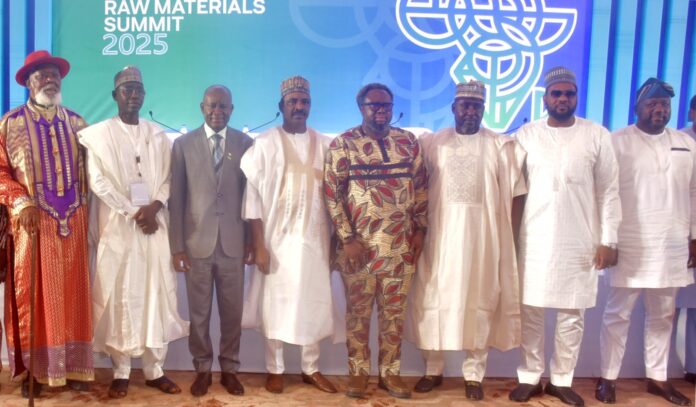By Joel Ajayi
The Nigerian Senate has assured Nigerians and the broader African community that the 30% Raw Materials Value Addition Bill will be passed this week and transmitted to the House of Representatives for concurrence.
Senate President, Senator Godswill Akpabio, gave this assurance on Tuesday at the opening ceremony of the inaugural Africa Raw Materials Summit 2025, held in Abuja, under the theme “Shaping the Future of Africa’s Resource Landscape.”
Speaking on behalf of the Senate President, the Chairman of the Senate Committee on Science and Technology, Senator Aminu Abbas, stated:
“I can assure you that the 30% Value Addition Bill before the Senate will be passed this week and transmitted to the House of Representatives for concurrence.”
Earlier in his address, Senator Akpabio emphasized the Senate’s commitment to addressing structural imbalances in Africa’s resource economy.
“In the Nigerian Senate, we have resolved to be proactive. That is why I reaffirm our full legislative support for the 30% Minimum Value-Addition Bill currently under consideration,” he said.
“This groundbreaking bill mandates that no raw material of Nigerian origin shall be exported without undergoing a minimum of 30% local value addition—through processing, refining, packaging, or industrial transformation.”
He clarified that the legislation is not designed to restrict trade but to stimulate local enterprise, generate employment, attract investment, and strengthen value chains across the country.
“We must break from the historical model where Africa supplies raw inputs while others profit from innovation, branding, and global market control,” he added.
Senator Akpabio also called on other African nations to replicate the legislation to enhance their economies.
“I echo the call for the adoption of an Abuja Declaration on Raw Materials and Industrial Transformation in Africa. Let this not remain a summit communiqué but evolve into a living charter—a blueprint for executive action, legislative harmony, and investment mobilization,” he urged.
“Let it shape our voice at the African Union, the G20, and global trade forums—not as suppliers, but as producers.”
Also speaking at the summit, the Minister of Science, Innovation and Technology, Chief Geoffrey Innaji, represented by the Minister of Transport, highlighted the use of digital tools and traceability infrastructure to boost intra-African trade under AfCFTA.
“We are bridging research and industry to drive transformation. Africa will no longer export its future in raw form. Our minerals will power industries, our crops will feed global markets, and our youth will lead innovation,” he said.
Minister of State for Industry, John Owen, expressed optimism about the continent’s future under AfCFTA.
“The African Continental Free Trade Area opens vast opportunities. It’s time to shift from exporting raw materials to exporting finished goods,” he noted.
Commenting on the significance of the summit, the Director General of the Raw Materials Research and Development Council (RMRDC), Prof. Nnanyelugo Ike-Mounso, declared:
“Today, we gather not merely for a summit, but for a solemn declaration: Africa shall no longer be the warehouse of raw potential, but the workshop of refined prosperity.”





